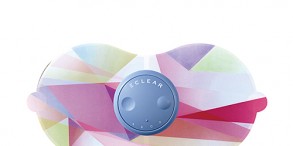Venus Probe "Akatsuki" on Traveling Track
Japan's first planetary explorer "Venus Probe Akatsuki" was safely put on a right traveling track to Venus December 9. Akatsuki is the first planetary probe ever to enter a planetary traveling orbit. The probe will now spend two years observing the atmospheric conditions of Venus.
Venus probe Akatsuki failed to enter Venus' traveling track earlier in December 2012 due to an engine failure. Five years since, on December 7, the Japan Aerospace Exploration Agency (JAXA) now ran all four engines for 20 minutes to control the probe's posture prior to putting it on the scheduled traveling track.
The Earth and Venus are identical in size and mass and often called binary stars, but in terms of environment the twin stars are far apart. Venus is covered with clouds of sulfuric acid and a violent wind called "Super Rotation" blows its atmosphere at 100 meters per second. The atmosphere is practically carbon dioxide and its surface nearly 460 degrees in centigrade due to greenhouse effect.
Akatsuki is up there ready to carry out a series of observations to unlock the mysteries surrounding Venus.
Akatsuki will among others study the Super Rotation blowing above and Venus' atmospheric pressure 90 times that of the Earth. Also included is Venus' unique meteorology. The earth and Venus are twin starts composed of practically the same rocks. It has always been a riddle why two neighboring stars can be environmentally so dramatically different. Akatsuki sets out to clarify the meteorological mechanism of the Earth.
Akatsuki was initially scheduled to circle Venus in 30 hours but after the orbiting failure it travels its elliptical orbit in 15 days.
Akatsuki's feat reminds us all of the Asteroid Probe "Hayabusa" now on its way to Ryugu. Prof. Naomoto Iwagami of Tokyo University, developer of the camera mounted on the probe, comments:
"The probe has survived for 5 years in space constantly under heavy radiation. I'm so pleased to see no damage done on my camera".








